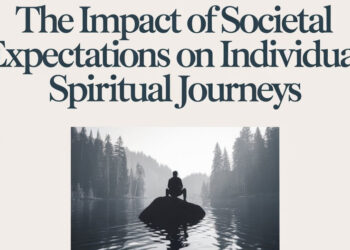No products in the cart.
Exploring The Concept Of Karma In Different Spiritual Traditions
This post contains paid and/or affiliate links. I make a small commission at no extra cost to you. Please see our Privacy Policy.
The concept of karma holds significant importance in various religious and spiritual traditions across the globe. It is a belief that our actions and experiences are interconnected through the law of karma.
This concept has deep roots in Asian religious practices like Hinduism, Buddhism, and Jainism and has also influenced spiritual and New Age movements in the Western world.
Although comprehensive research on the psychology of karmic beliefs is currently limited, recent studies have developed and validated methods to measure belief in karma, examining its correlates and predictive implications in different cultures.
What is Karma?
Karma is a fundamental concept in several religious traditions that originated in India and spread throughout Asia. It integrates belief in reincarnation with the idea that an individual’s actions, whether good or bad, lead to corresponding outcomes in the future.
The connection between moral actions and karmic consequences may manifest over long timescales, even across multiple lifetimes. Karma is believed to determine various aspects of an individual’s life, including health, economic outcomes, and even gender or animal form in some traditions.
Karma, Justice Beliefs, and Supernatural Forces
While limited research focuses explicitly on karma, other psychological constructs share essential elements with karmic doctrine. Belief in fairness and justice and belief in supernatural entities that reward and punish based on moral behavior are conceptually related to karma. Like karma, these justice beliefs emphasize the expectation that actions lead to corresponding outcomes. Additionally, belief in karma may be influenced by cultural traditions and exposure to Karmic theology, such as Hinduism or Buddhism.
Karma and Cause and Effect
At its core, karma is based on the principle of cause and effect. Just as throwing a pebble into a pond creates ripples, our actions create a ripple effect in the universe. This ripple effect can manifest in different ways and at different times, but it always reflects the nature of our actions. Understanding karma helps us recognize the interconnectedness of our actions and the consequences they generate in our lives.
Karma and Rebirth
Karma is closely intertwined with the belief in rebirth or reincarnation. According to this belief, the consequences of our actions in this life follow us into future lives. This suggests that our choices today can have far-reaching effects on our future selves and the experiences we encounter.
Karma serves as a guiding force, encouraging individuals to consider the consequences of their actions and make choices aligned with ethical principles and compassionate values. By understanding the concept of karma, we acknowledge that our actions have consequences and take responsibility for our impact on ourselves and the world around us.
Karma in Different Cultures
Karma, the universal law of cause and effect, is a concept that extends beyond specific cultural and religious boundaries. It has found its way into various cultures worldwide, with each society interpreting and integrating karma into its unique belief systems and customs.
In Indian religions like Hinduism, Buddhism, and Jainism, karma is a fundamental principle that governs the cycle of birth, death, and rebirth. It is seen as a cosmic force that determines the consequences of our actions and shapes our destiny from one life to another.
However, karma’s influence is not limited to Indian religions alone. In Western societies, karma has been adopted and reinterpreted as a moral principle emphasizing personal responsibility and accountability for one’s actions. It is often viewed as a guiding force that encourages individuals to make ethical choices and take ownership of the outcomes they create.
Furthermore, different cultures worldwide have integrated karma into their unique spiritual and philosophical traditions. They have interpreted karma through the lens of their cultural values and beliefs, giving rise to diverse perspectives and applications of the concept.
Karma in Western Culture
In Western culture, karma is commonly associated with “what goes around, comes around.” It reflects the belief that one’s actions have consequences that will ultimately be experienced in the future, whether in this life or the next. This understanding of karma is often intertwined with moral responsibility and notions of justice.
Western interpretations of karma emphasize the importance of individual choice and the power of free will. It encourages individuals to reflect on their actions, take responsibility for their behavior, and strive to create positive change in their lives and the lives of others.
Karma in other Cultures
While karma’s origins can be traced back to ancient Indian religions, it has also permeated other cultures and belief systems. For example:
- In Chinese culture, karma is closely tied to fate or destiny. It is believed that one’s present circumstances are a consequence of past actions and choices.
- In Indigenous spiritual traditions, karma is part of a broader interconnectedness with nature and all living beings. It highlights the importance of living in harmony with the natural world and recognizing the impact of our actions on others.
- In African cultures, karma is often understood through the lens of communal responsibility and accountability. It emphasizes the interconnectedness of the community and the need to consider the well-being of others in all actions.
These are just a few examples of how different cultures have interpreted and incorporated karma into their beliefs. It demonstrates the universal appeal of the concept and its ability to resonate with people from diverse backgrounds.
Overall, the presence of karma in different cultures serves as a testament to its enduring relevance and power as a guiding principle. It offers individuals a framework for understanding the consequences of their actions, fostering personal growth, and cultivating a sense of interconnectedness with the world around them.
Conclusion
Exploring the concept of karma in different spiritual traditions reveals its profound influence on our lives. Karma teaches us that our actions have consequences, shaping our present experiences and future destiny. It emphasizes the interconnectedness of our actions and the ripple effect they create in the universe.
Understanding karma encourages us to act with integrity, empathy, and kindness, as we are responsible for our actions and their outcomes. By recognizing the power of karma, we can strive to create a positive impact on ourselves and the world around us.
Throughout various spiritual traditions, karma holds significant importance and is a guiding principle for leading a meaningful and purposeful life. Whether in Hinduism, Buddhism, or other belief systems, karma encourages individuals to examine their actions and make choices aligned with ethical principles and compassionate values.
By exploring the varied interpretations of karma in different cultures, we gain a deeper understanding of its universal relevance. While specific beliefs may differ, the influence of karma remains consistent – reminding us of the interconnected nature of our actions and the responsibility we hold for shaping our own experiences.
FAQ
What is karma?
Karma is a fundamental concept in several religious traditions that originated in India and spread throughout Asia. It integrates belief in reincarnation with the idea that an individual’s actions, whether good or bad, lead to corresponding outcomes in the future.
How is karma related to justice beliefs and supernatural forces?
Belief in fairness and justice and belief in supernatural entities that reward and punish based on moral behavior are conceptually related to karma. Like karma, these justice beliefs emphasize the expectation that actions lead to corresponding outcomes.
What is the relationship between karma and cause and effect?
Karma is based on the principle of cause and effect. Just as throwing a pebble into a pond creates ripples, our actions create a ripple effect in the universe. This ripple effect can manifest in different ways and at different times, but it always reflects the nature of our actions.
How does karma relate to rebirth?
Karma is closely intertwined with the belief in rebirth or reincarnation. According to this belief, the consequences of our actions in this life follow us into future lives. This suggests that our choices today can have far-reaching effects on our future selves and the experiences we encounter.
Is karma present in different cultures?
Yes, karma has transcended cultural and religious boundaries, being interpreted and incorporated into various cultures worldwide. While karma is most commonly associated with Indian religions, different societies have embraced and adapted it.
What is the significance of exploring karma in different spiritual traditions?
Exploring the concept of karma in different spiritual traditions reveals its profound influence on our lives. Karma teaches us that our actions have consequences, shaping our present experiences and future destiny. It emphasizes the interconnectedness of our actions and the ripple effect they create in the universe.













